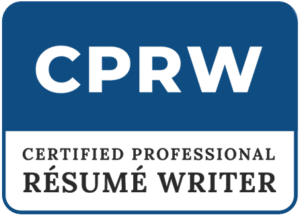Your resume is the first impression a recruiter is going to have of you. And word says that the first impression is the one that sticks. So you better make a good one.
But how can you tell if you have put together a good resume or a bad one? Well, a good indicator is the number of negative responses you are getting. Or, worse, the response never come.
Besides the mentioned indicators, this article is here to help you out. You will be able to find below a list of the 7 most common mistakes people make on their resumes. You can check yours and see if you need to hire a professional resume writer to fix issues.
1. Including Too Much or Too Little Information
When writing a cover letter, always ask yourself if that information is entirely relevant to the job opportunity you are applying for. If the answer is no, it’s best you leave it out, especially if it is personal information. The reason for that is because recruiters are often short on time and it can make them distracted, missing out on the important information.
On the other hand, cover letters that are way too short will fail to give recruiters a good snapshot on who you are as a professional and will, most likely, make you seem unprofessional or not interested enough on the job.
As a general rule, your letter should focus on telling the recruiter why you can be the best-qualified person for that specific job, and everything you have to offer the company. Try to get that message across while aiming to fill about 2/3 of an A4 document.
2. Using Any Information That Is Not True
Everyone wants to impress whoever reads their resumes. But a huge mistake some people end up making is lying about something on their resumes.
Besides being unethical, the risky thing about lying on your resume is that the recruiter can do some fact checking and end up finding out that you are not telling the truth, which doesn’t look good for you and you will be immediately disqualified from the hiring process.
Another thing that can be even worse is if you do get the job, there might come a time where the company will need to to perform something according to the skills and experiences you have provided on your resume. And, when you find yourself not being able to accomplish that task, again, it will definitely not look good for you and you can even end up losing the job.
So trust yourself and make the most of the experiences and skills you do have and bring up some soft skills that can compensate for the hard skills you might lack, such as mentioning that you have excellent learning skills.
3. Writing Any Unrequested Salary Expectations
Unless the recruiter or the job’s guidelines specifically asks you to write your salary expectations, applicants should never do so.
The reason why you shouldn’t do this is because it can look like you are only interested and motivated by the money rather than the position and company themselves.
4. Making Negative Comments About People or Workplaces
Another thing you should never do in your resume is make negative comments about people or places you have worked with or for. You can come off as someone with poor people skills or who has trouble with teamwork. And, overall, it seems rude and inappropriate.
Focus on your skills and experiences with your job descriptions and leave out any personal thoughts about other people.
5. Not Proofreading It
After writing your resume, always make sure to check for any grammar errors. It’s normal to misspell one thing or another as you write something, so use a word processor program to proofread it before you send your resume out. Resumes with grammar or spelling errors can send the wrong message and can make recruiters think you are sloppy or lazy.
6. A Poor Layout
Some people think that you should only worry about your resume layout if you are applying to a job that requires design skills. But a resume that is poorly designed or not organized can confuse the recruiter, causing them to miss out on important information or make them think you are lazy, sloppy or unprofessional. So always keep your resume neat, organized and professional, avoiding colors and thematic fonts, and big blocks of text.
7. Exaggerating
Even though you want to show the recruiter that you are both capable and interested in the job, exaggerating on your resume can make you look unprofessional.
Avoid using unprofessional fonts, colors, bold letters and exclamation points to keep it professional.
Writing your own resume can be harder than most people think. So use this list to check your resume and see if you are making any of the mistakes above. Another great tip is to hire a professional resume writing service, that way you can make sure your resume is as perfect and functional as it can be!




